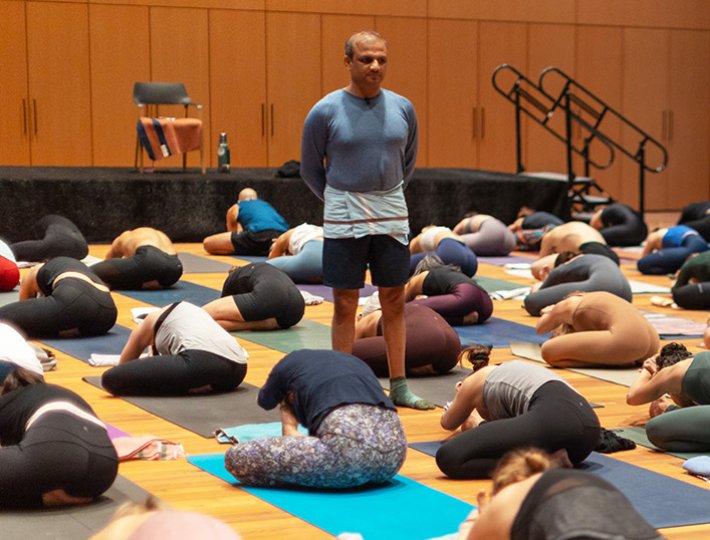In his 2005 Stanford commencement speech, Steve Jobs reflected on his trajectory through life and the fortuitous events that shaped it: “If I had never dropped in on that single [calligraphy] course in college, the Mac would have never had multiple typefaces and proportionally-spaced fonts. Of course it was impossible to connect the dots looking forward when I was in college…you can only connect them looking backwards.” His being a stubborn visionary is often credited for his success, but as revealed in his speech, it was the incidentals that ultimately informed his ideas, transforming the lives of millions.
Contemporary psychologist and theorist, Albert Bandura, refers to the phenomenon of incidental occurrences shaping life progress as fortuitous determinants of life paths. These chance encounters carry what he calls branching power—they could not have been planned and yet they inspire a chain of events that can lightly or strongly shift someone’s life course, exposing them to new social groups and unexpected opportunities.
The most hopeful and unsettling part about chance encounters? They are guaranteed to happen to everyone. In one inquiry paper, Bandura offers this heartwarming anecdote to support his claims:
Some years ago I delivered a presidential address to the Western Psychological Association on the psychology of chance encounters and life paths. At the convention the following year an editor of one of the publishing houses explained to me that he had entered the lecture hall as it was rapidly filling up and seized an empty chair near the entrance. In the coming week he will be marrying the woman who happened to be seated next to him. With only a momentary change in time of entry, seating constellations would have altered and this intersect would not have occurred. A marital partnership was thus fortuitously formed at a talk devoted to fortuitous determinants of life paths!
We know that claiming a seat at a convention doesn’t necessarily guarantee us a spouse, but as Bandura clarifies, “the power of fortuitous influences to inaugurate enduring change is determined by the reciprocal influence of personal proclivities and social factors.” In other words, we need to be personally open to these chance occurrences and their branches, and we need to enter environmental contexts where more chance encounters are likely.
The purpose and practice of yoga is designed for this. Physical asana practice allows us to become more aware of and balance our physical, cognitive, and emotional states. Yoga allows us to release tensions so we can be more aware and happy in the present moment when a seemingly trivial (or even seemingly adverse) branch fortuitously bows our way. We can also take the reins in shaping our destiny by making minor changes in our everyday activities.
To help move you toward a place of openheartedness with open eyes for the fortuitous branches in your life, here are a few simple suggestions:
1. Open your heart chakra to invite warmth and support into your life with this one-minute practice. A study published in the Journal of Personality and Social Psychology in 2008 shows that with loving-kindness meditation, people’s experiences of positive emotions build over time, thereby leading to openness and accrual of personal resources such as good friends and a sense of purpose. To begin this heart-opening practice, find a comfortable seated position and close your eyes. Begin with an easy, natural breath. Imagine a tiny point of silvery light at the center of your chest, bringing your thumb and forefinger to touch at middle of your sternum. As you inhale, imagine the point of light expanding through the front, back, and sides of your chest, and as you exhale, envision the light drawing back toward center point. Continue elongating your inhalations as much as is comfortable as you envision the light expanding, and elongating your exhalations as you imagine the light drawing back to heart center. After four to five cycles of breath, let go of the visualization and notice any difference in how you feel.
2. Dare to change your routines to awaken opportunity and creativity. A study published in 2011 in the Journal of Management identifies a key factor in stifled creativity of employees: resistance to change. Rigidity in routines was associated with a bias against new ways of thinking and opportunity. Where might you be stuck to routines in your own life, and what new inspiration or opportunity await? If your office commute regularly takes you down 20th Street, consider trying 18th Street tomorrow. Perhaps you’d find little difference in speed, or maybe you’d gain momentum giving you more time to sip your morning coffee or catch a striking news article you would have otherwise skipped. Or by switching routes, perhaps you pass a flower shop you had never noticed before, inspiring you to embed daisies into that logo you’re designing for a client, which turns out to be just what was missing.
3. When your friend gets up for the bathroom at dinner, leave your cell phone in your jacket pocket. Bandura’s recommendation to creating more opportunities to experience chance encounters starts with one important step: looking outward. While cell phones have helped us to connect in many ways, research shows that cell phone use was associated with higher levels of loneliness and found that more face-to-face interactions were associated with lower levels of loneliness. The implication is that it is easier to stay tucked in our comfort group of cell phone contacts rather than tuning into the present and into potentially unpredictable surroundings. The next time you find yourself alone, see if you can resist the temptation to move into social “safety” through your cell phone, and instead look up and around you. As your best friend powders her nose, you might make eye contact and share a smile with the attractive person in the booth next to your table. Or you might find that the restaurant in which you’re dining features themed artwork on the walls resembling your own, which in turn inspires to ask to show your painting portfolio to the owner.
Whether chance brings you a first date or creative inspiration, try to stay patient and present as you go. The meaning behind occurrences may not surface until you connect the dots later on.








Comments (1)